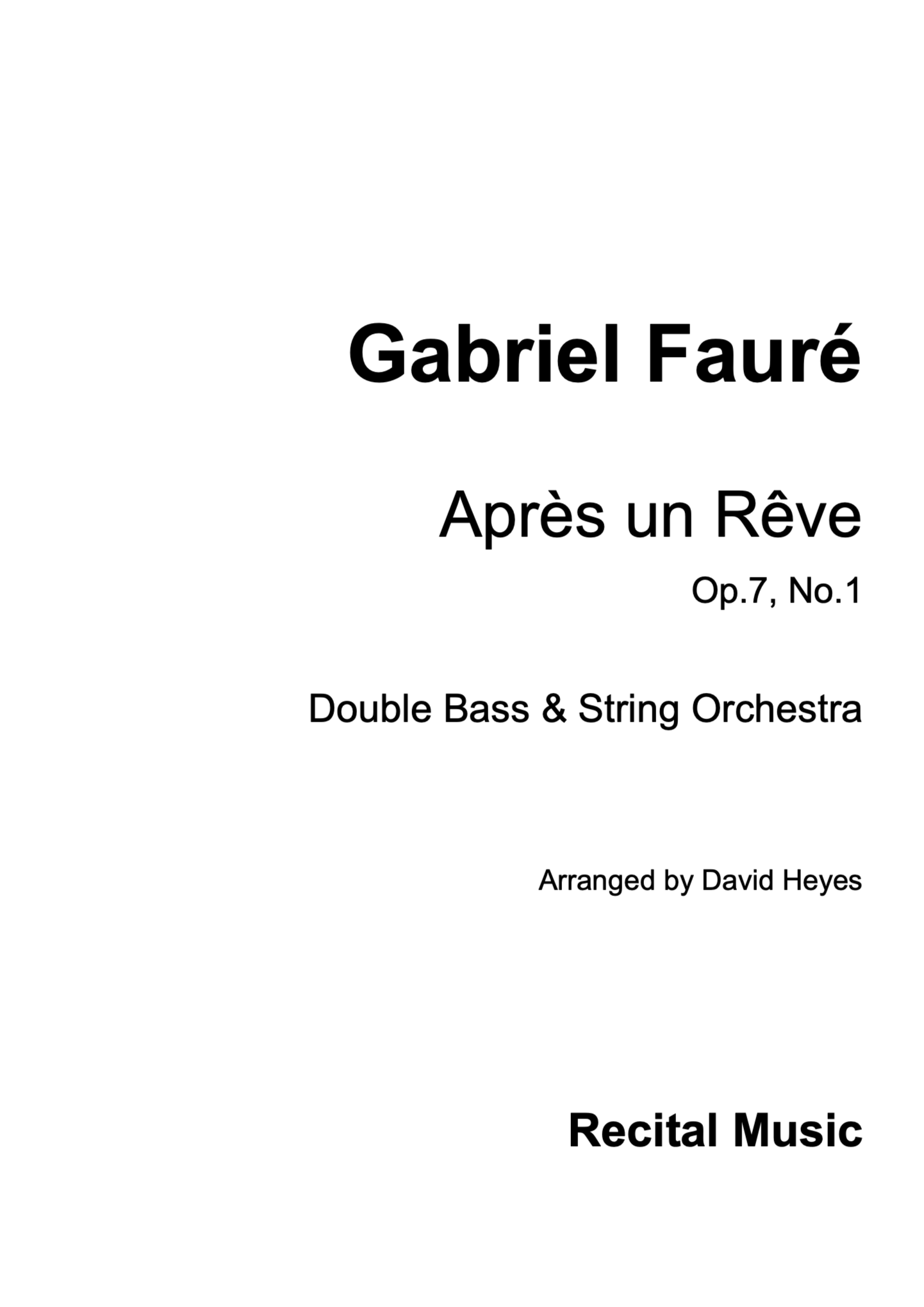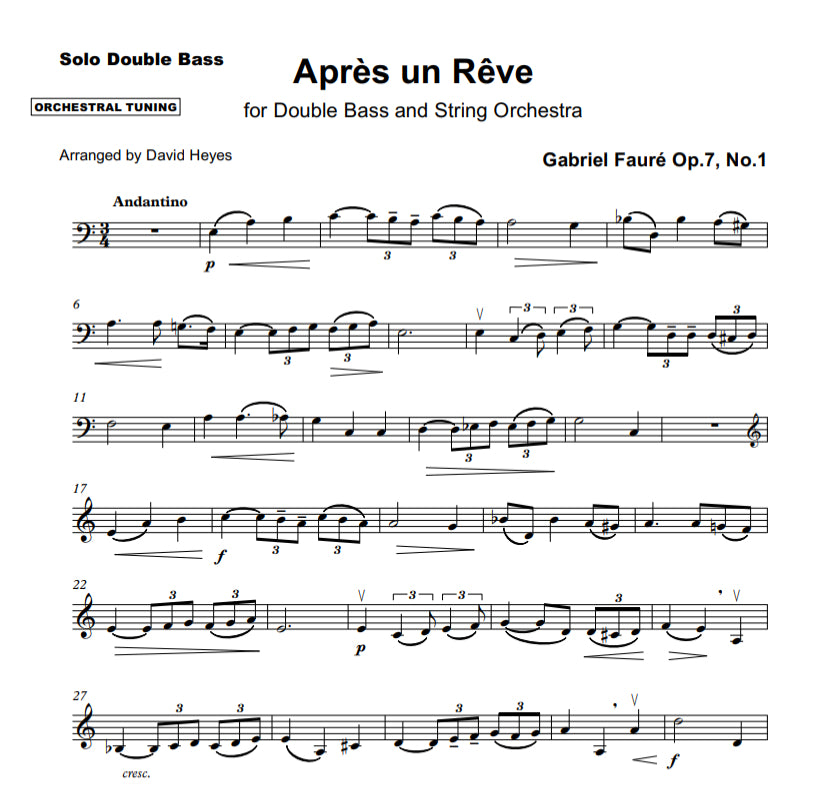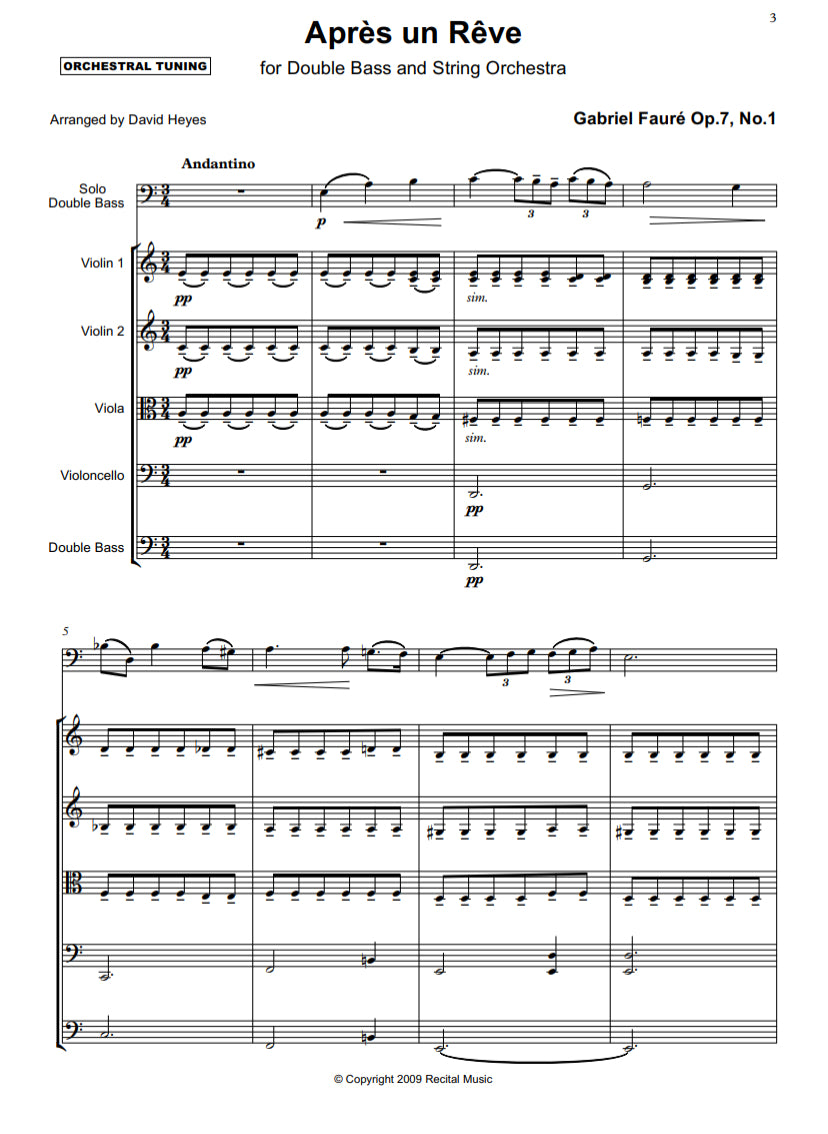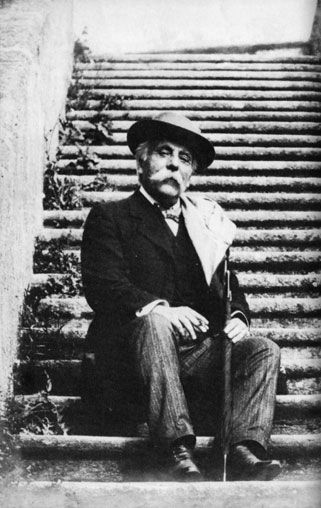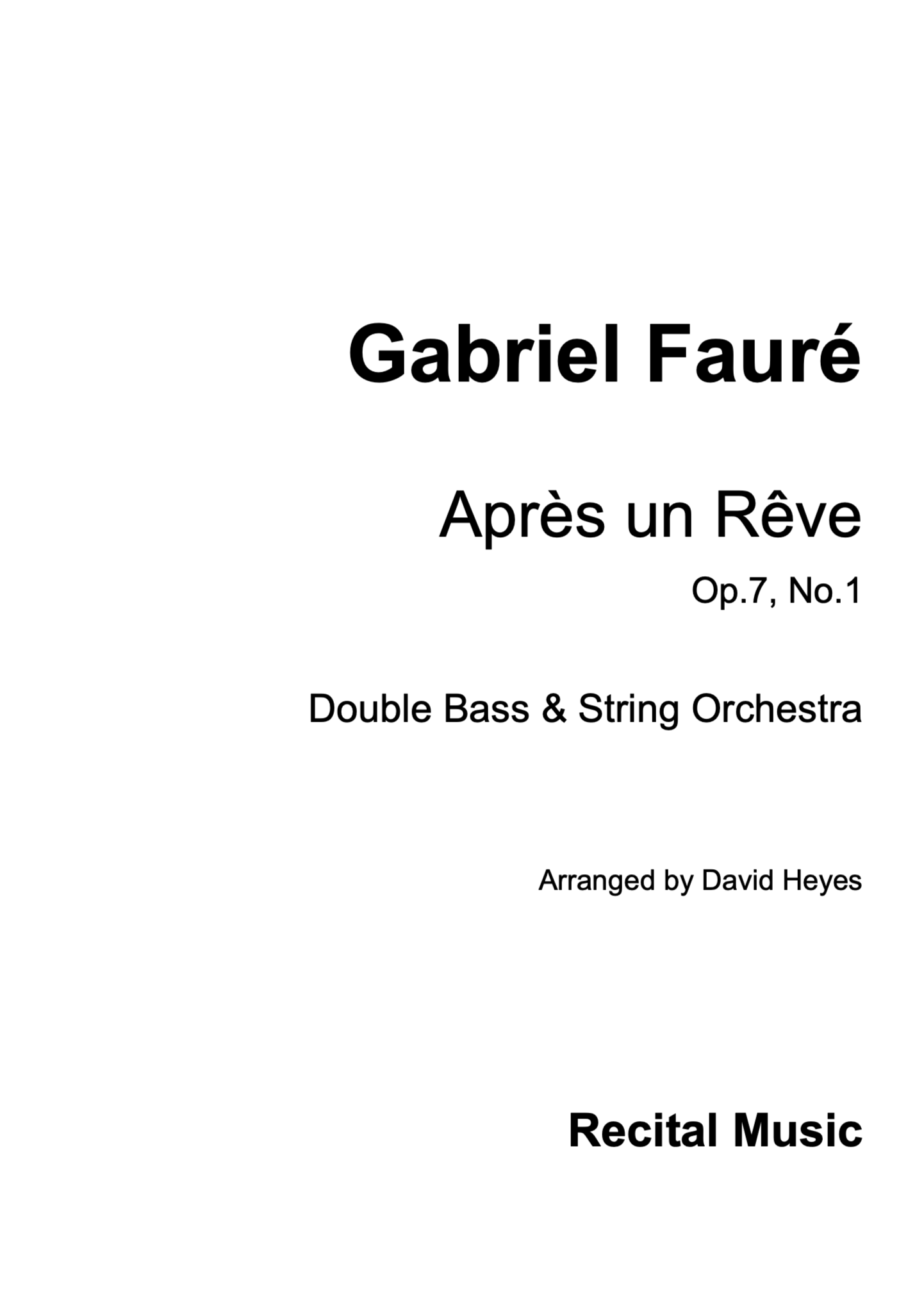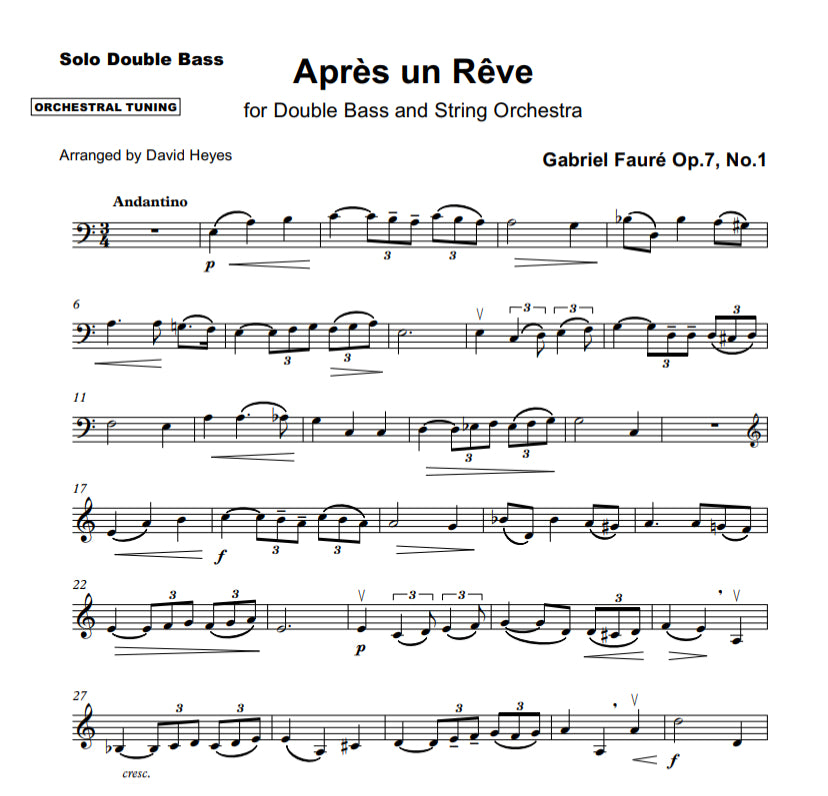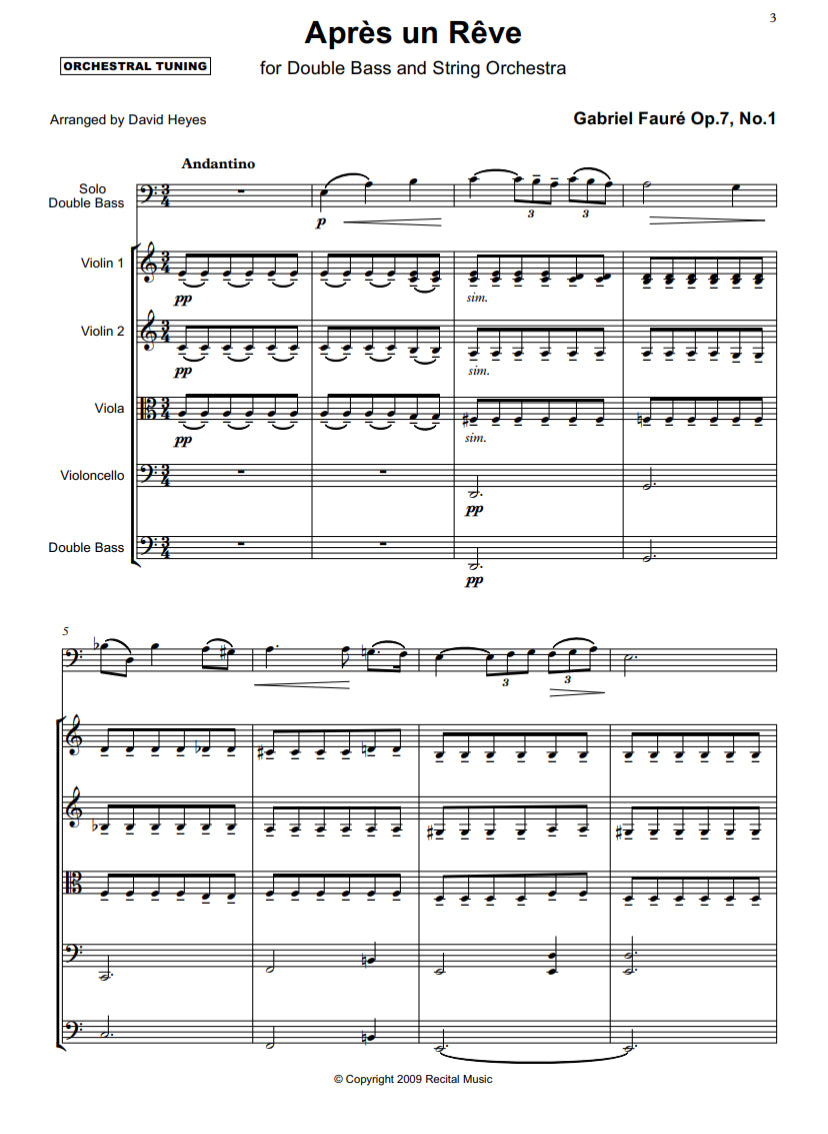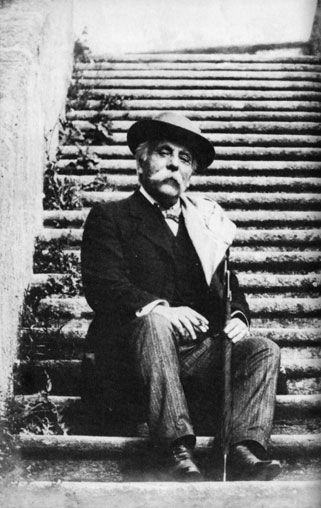David Heyes
Gabriel Fauré: Après un Rêve for double bass & string orchestra (arr. David Heyes)
Gabriel Fauré: Après un Rêve for double bass & string orchestra (arr. David Heyes)
Couldn't load pickup availability
About the Composition
One of Faure's most evocative and atmospheric songs transcribes beautifully for the good intermediate bassist. The accompaniment provides an underlying pulse above which the solo line weaves a dreamy and richly expressive melody. The harmonies are refined, typical of the late-romantic style but looking forward to the 20th century, contrasting a most exquisite melodic line. The repeated quaver accompaniment adds a sense of forward momentum to this beautiful and sonorous miniature.
This edition includes a score and parts for both solo and orchestral tuning.
About the Composer
Gabriel Urbain Fauré (1845-1924) was a French composer, organist, pianist and teacher and was one of the foremost French composers of his generation. His musical style influenced many 20th-century composers and among his best-known works are his Pavane, Requiem, Nocturnes, Après un rêve and Clair de lune, alongside a wealth of instrumental and vocal music.
Although his best-known and most accessible compositions are generally his earlier ones, Fauré composed many of his most highly regarded works in his later years, in a harmonically and melodically much more complex style. Among his teachers was Camille Saint-Saëns, who became a lifelong friend and, after graduating in 1865, Fauré earned a modest living as an organist and teacher, leaving him little time for composition. He was subsequently appointed to the important posts of organist of the Église de la Madeleine and director of the Paris Conservatoire.
Fauré's music has been described as linking the end of Romanticism with the modernism of the second quarter of the 20th century. When he was born, Chopin was still composing, and by the time of Fauré's death, jazz and the atonal music of the Second Viennese School were being heard. Grove's Dictionary of Music and Musicians describes him as the most advanced composer of his generation in France and noted that his harmonic and melodic innovations influenced the teaching of harmony for later generations.
